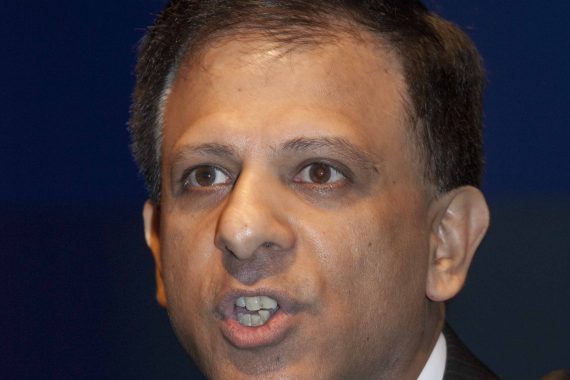Doctor leaders have warned that political wrangling over Brexit is distracting from the ‘grave danger’ faced by the health service as it enters its toughest months of the year.
The BMA is asking ministers and policymakers to ‘urgently outline’ their plans to address immediate pressures in the NHS, after it was suggested that the Government’s long-term plan has been delayed amid internal disputes over Brexit.
The NHS had the worst November on record, with waiting lists growing substantially and the number of A&E patients seen within the four-hour target the lowest ever, according to NHS figures.
BMA council chair Dr Chaand Nagpaul, a GP in north west London, said: ‘The political chaos surrounding Brexit means the urgent healthcare needs of the country are not being addressed just as we enter the most challenging months of the year.
‘We were assured that the Government was going to lay out its long-term plan for the NHS before Christmas, but the Brexit stalemate means this has now been delayed until at least the new year.’
The BMA highlighted seven key areas which it said would be impacted by Brexit – including workforce, recognition of professional qualifications, access to medicines, radioisotopes and Northern Ireland – and repeated calls for a second referendum.
The news comes as a Government white paper on immigration after Brexit, published today, said there would not be a reinstatement of the former cap on the number of NHS workers that can enter the UK under the ‘tier 2’ visa route. This follows a Home Office announcement that it would lift the cap earlier this year.
The white paper also said the Government is still considering plans for a £30,000 earnings threshold, which doctor leaders have warned could affect the NHS workforce.
Commenting on the plans, Dr Nagpaul said: ‘Any arbitrary salary threshold will affect vast swathes of the NHS workforce coming from overseas, and while the earlier floated figure of £30,000 a year may be reconsidered, anything close to this would have a huge knock-on effect for the health service. Doctors depend on a range of staff to support them to carry out their work and a salary threshold would prevent overseas workers from filling these vital roles.
‘The BMA lobbied hard to have doctors removed from the tier 2 visa cap earlier this year, and we’re glad that the Government has finally abolished the limit altogether. However, it’s incredibly disappointing that this victory for common sense has not been reflected elsewhere in this paper.’
RCGP chair Professor Helen Stokes-Lampard said: ‘We are pleased to hear that, following repeated calls by RCGP and the BMA, the Government plans to scrap the tier 2 visa cap for skilled workers in any migration system post-Brexit, including doctors wishing to move here to meet the significant gaps in our NHS workforce.’
But she added that the college was also concerned about the potential £30,000 salary requirement, which ‘would prevent other vital healthcare staff and support workers from being employed as practice nurses and other members of our wider practice teams’.
The warnings come after the GMC highlighted in November that Brexit threatens a supply of doctors to the NHS at a time when staffing levels are critical.
Pulse October survey
Take our July 2025 survey to potentially win £1.000 worth of tokens














